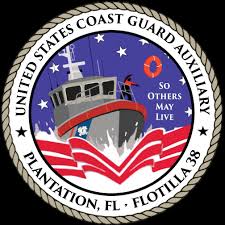
Introduction to Flotillas
Flotillas play a critical role in maritime operations, particularly in naval warfare, humanitarian missions, and environmental monitoring. A flotilla, generally defined as a group of small naval vessels, can efficiently execute a variety of tasks, from surveillance to combat support. The study and understanding of flotillas are increasingly relevant in today’s geopolitical climate, where maritime disputes and environmental challenges necessitate coordinated responses.
Key Developments in Flotilla Operations
Recently, the concept of flotillas has gained traction, especially with the resurgence of regional tensions in places like the South China Sea and the Eastern Mediterranean. The United States Navy and allied forces have been organizing joint flotilla operations to showcase strength and deterrence capabilities against potential adversaries. These exercises are not merely military posturing; they reinforce international alliances and are crucial for maintaining freedom of navigation, especially in contested waters.
For instance, in July 2023, a significant joint flotilla exercise was conducted involving the U.S., Japan, and Australian naval forces. The exercise aimed to enhance interoperability among the allies while sending a clear message of commitment to a rules-based maritime order in the region. These flotilla exercises are designed to test various operational scenarios, including air defense, anti-submarine warfare, and humanitarian assistance missions.
Flotillas in Humanitarian Operations
Moreover, flotillas are increasingly utilized in humanitarian operations, particularly during natural disasters. The recent ships deployed by the Turkish government in response to the devastating 2023 earthquakes in Turkey and Syria showcased how flotillas can provide rapid aid delivery, medical assistance, and logistical support. The ability to mobilize multiple vessels allows for quicker responses, supporting international efforts to save lives and provide essential resources.
Environmental Monitoring and Protection
Flotillas also play pivotal roles in environmental monitoring and protection. Small vessels can effectively patrol coastal areas, monitor marine life, and enforce fishing regulations to reduce illegal fishing activities. These operations are essential for ensuring sustainable fisheries and protecting marine biodiversity, which is under constant threat from overfishing and habitat destruction.
Conclusion
As global tensions rise and environmental challenges become more pressing, the importance of flotillas in both military and humanitarian contexts is likely to grow. The ability to operate collaboratively across nations enhances not only the efficiency and effectiveness of maritime operations but also strengthens international relations. Thus, understanding the strategic and humanitarian significance of flotillas will be vital for policymakers, maritime authorities, and the general public.



